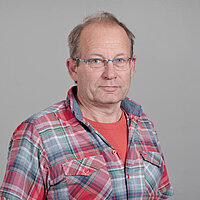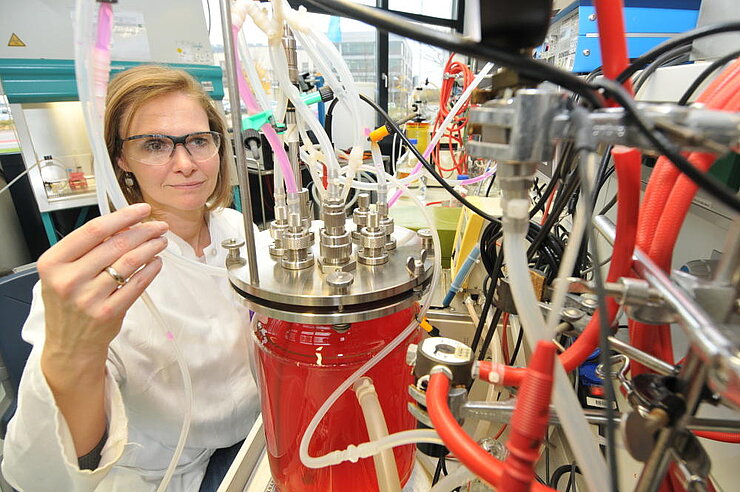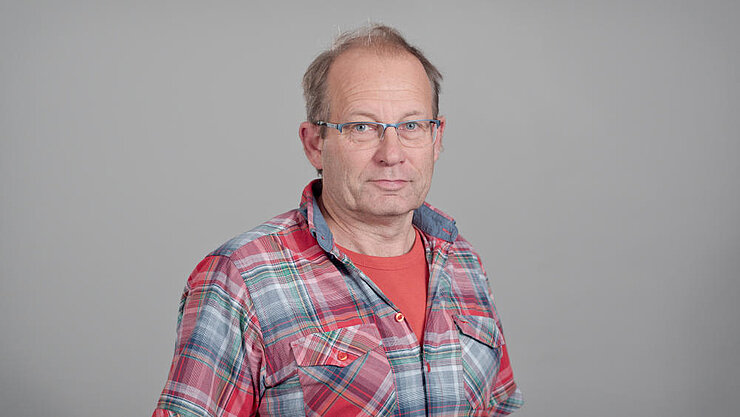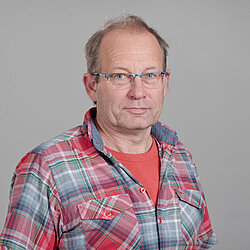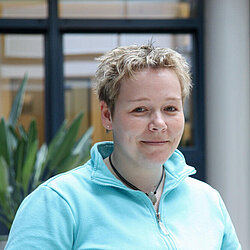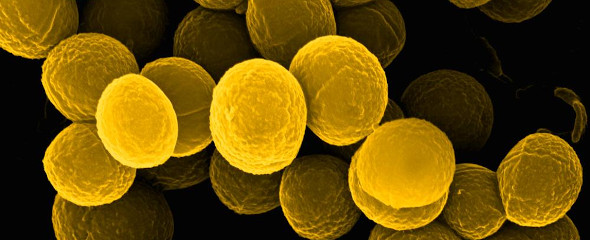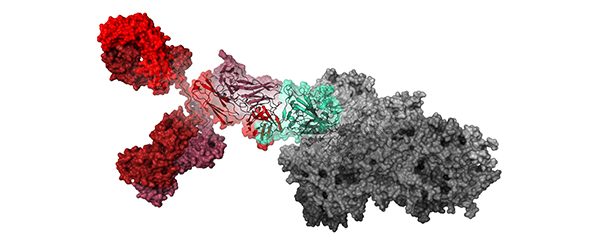Author count: 13
Lehky M., Moonian T., Michel T., Junker D., Müsken M., Strömpl J., Nübling P., Neumann F., Krumbholz A., Krause G., Schneiderhan-Marra N., ... , van den Heuvel J., Strengert M.
(2025)
A novel method for recombinant mammalian-expressed S-HBsAg virus-like particle production for assembly status analysis and improved anti-HBs serology
Protein Sci.,
34
(1)
Author count: 15
Schütz A., Bernhard F., Berrow N., Buyel J.F., Ferreira-da-Silva F., Haustraete J., van den Heuvel J., Hoffmann J.E., de Marco A., Peleg Y., Suppmann S., Unger T., Vanhoucke M., ... , Witt S., Remans K.
(2023)
A concise guide to choosing suitable gene expression systems for recombinant protein production
STAR.Protoc.,
4
(4)
Author count: 8
Katzmarzyk M., Clesle D.C., van den Heuvel J., Hoffmann M., Garritsen H., Pöhlmann S., ... , Jacobsen H., Cicin-Sain L.
(2023)
Systematical assessment of the impact of single spike mutations of SARS-CoV-2 Omicron sub-variants on the neutralization capacity of post-vaccination sera
Front.Immunol.,
14
Author count: 4
Kaipa J.M., Krasnoselska G., Owens R.J., van den Heuvel J.
(2023)
Screening of Membrane Protein Production by Comparison of Transient Expression in Insect and Mammalian Cells
Biomolecules.,
13
(5)
Author count: 16
Sun S., Fushimi M., Rossetti T., Kaur N., Ferreira J., Miller M., Quast J., van den Heuvel J., Steegborn C., Levin L.R., Buck J., Myers R.W., Kargman S., Liverton N., ... , Meinke P.T., Huggins D.J.
(2023)
Scaffold Hopping and Optimization of Small Molecule Soluble Adenyl Cyclase Inhibitors Led by Free Energy Perturbation
J.Chem.Inf.Model.,
63
(9)
Author count: 19
Miller M., Rossetti T., Ferreira J., Ghanem L., Balbach M., Kaur N., Levin L.R., Buck J., Kehr M., Coquille S., van den Heuvel J., Steegborn C., Fushimi M., Finkin-Groner E., Myers R.W., Kargman S., Liverton N.J., ... , Huggins D.J., Meinke P.T.
(2022)
Design, Synthesis, and Pharmacological Evaluation of Second-Generation Soluble Adenylyl Cyclase (sAC, ADCY10) Inhibitors with Slow Dissociation Rates
J.Med.Chem.
Author count: 17
Jaron M., Lehky M., Zarà M., Zaydowicz C.N., Lak A., Ballmann R., Heine P.A., Wenzel E.V., Schneider K.T., Bertoglio F., Kempter S., Köster R.W., Barbieri S.S., van den Heuvel J., Hust M., ... , Dübel S., Schubert M.
(2022)
Baculovirus-Free SARS-CoV-2 Virus-like Particle Production in Insect Cells for Rapid Neutralization Assessment
Viruses,
14
(10)
Author count: 8
Li Z., Geffers R., Jain G., Klawonn F., Kökpinar Ö., Nimtz M., ... , Schmidt-Heck W., Rinas U.
(2021)
Transcriptional network analysis identifies key elements governing the recombinant protein production provoked reprogramming of carbon and energy metabolism in Escherichia coli BL21 (DE3)
Engineering Reports,
3
(9)
Author count: 21
Reboll M.R., Klede S., Taft M.H., Cai C.-L., Field L.J., Lavine K.J., Koenig A.L., Fleischauer J., Meyer J., Schambach A., Niessen H.W., Kosanke M., van den Heuvel J., Pich A., Bauersachs J., Wu X., Zheng L., Wang Y., Korf-Klingebiel M., ... , Polten F., Wollert K.C.
(2022)
Meteorin-like promotes heart repair through endothelial KIT receptor tyrosine kinase
Science,
376
(6599)
Author count: 5
Sevenich M., van den Heuvel J., Gering I., Mohrlüder J., Willbold D.
(2022)
A So-Far Overlooked Secondary Conformation State in the Binding Mode of SARS-CoV-2 Spike Protein to Human ACE2 and Its Conversion Rate Are Crucial for Estimating Infectivity Efficacy of the Underlying Virus Variant
J.Virol.
Author count: 4
Li Z., Nees M., Bettenbrock K., Rinas U.
(2022)
Is energy excess the initial trigger of carbon overflow metabolism? Transcriptional network response of carbon-limited Escherichia coli to transient carbon excess
Microb.Cell Fact.,
21
(1)
Author count: 8
Peukert C., Popat Gholap S., Green O., Pinkert L., van den Heuvel J., Van Ham M., ... , Shabat D., Brönstrup M.
(2022)
Enzyme-Activated, Chemiluminescent Siderophore-Dioxetane Probes Enable the Selective and Highly Sensitive Detection of Bacterial Pathogens
Angew.Chem.Int.Ed Engl.
Author count: 10
Sevenich M., Thul E., Lakomek N.A., Klünemann T., Schubert M., Bertoglio F., van den Heuvel J., Petzsch P., ... , Mohrlüder J., Willbold D.
(2022)
Phage Display-Derived Compounds Displace hACE2 from Its Complex with SARS-CoV-2 Spike Protein
Biomedicines,
10
(2)
Author count: 1
Böldicke T.
(2021)
Varianten von SARS-CoV-2: Wie viel Schutz noch bleibt
Dtsch Arztebl International,
118
(38)
Author count: 38
Taubert R., Engel B., Diestelhorst J., Hupa-Breier K.L., Behrendt P., Baerlecken N.T., Sühs K.W., Janik M.K., Zachou K., Sebode M., Schramm C., Londono M.C., Habes S., Oo Y.H., Lalanne C., Pape S., Schubert M., Hust M., Dübel S., Thevis M., Jonigk D., Beimdiek J., Buettner F.F.R., Drenth J.P., Muratori L., Adams D.H., Dyson J.K., Renand A., Graupera I., Lohse A.W., Dalekos G.N., Milkiewicz P., Stangel M., Maasoumy B., Witte T., Wedemeyer H., ... , Manns M.P., Jaeckel E.
(2021)
Quantification of polyreactive immunoglobulin G facilitates the diagnosis of autoimmune hepatitis
Hepatology
Author count: 3
Weber J., Li Z., Rinas U.
(2021)
Recombinant protein production provoked accumulation of ATP, fructose-1,6-bisphosphate and pyruvate in E. coli K12 strain TG1
Microb.Cell Fact.,
20
(1)
Author count: 19
Korf-Klingebiel M., Reboll M.R., Polten F., Weber N., Jäckle F., Wu X., Kallikourdis M., Kunderfranco P., Condorelli G., Giannitsis E., Kustikova O.S.., Schambach A., Pich A., Widder J.D., Bauersachs J., van den Heuvel J., Kraft T., ... , Wang Y., Wollert K.C.
(2021)
Myeloid-Derived Growth Factor Protects Against Pressure Overload-Induced Heart Failure by Preserving Sarco/Endoplasmic Reticulum Ca(2+)-ATPase Expression in Cardiomyocytes
Circulation
Author count: 20
Fushimi M., Buck H., Balbach M., Gorovyy A., Ferreira J., Rossetti T., Kaur N., Levin L.R., Buck J., Quast J., van den Heuvel J., Steegborn C., Finkin-Groner E., Kargman S., Michino M., Foley M.A., Miller M., Liverton N.J., ... , Huggins D.J., Meinke P.T.
(2021)
Discovery of TDI-10229: A Potent and Orally Bioavailable Inhibitor of Soluble Adenylyl Cyclase (sAC, ADCY10)
ACS Med.Chem.Lett.
Author count: 3
König J., Hust M., van den Heuvel J.
(2021)
Validation of the Production of Antibodies in Different Formats in the HEK 293 Transient Gene Expression System
Methods Mol.Biol,
2247
(4)
Author count: 17
Korn J., Schäckermann D., Kirmann T., Bertoglio F., Steinke S., Heisig J., Ruschig M., Rojas G., Langreder N., Wenzel E.V., Roth K.D.R., Becker M., Meier D., van den Heuvel J., Hust M., ... , Dübel S., Schubert M.
(2020)
Baculovirus-free insect cell expression system for high yield antibody and antigen production
Sci.Rep.,
10
(1)
Author count: 20
Testolin G., Cirnski K., Rox K., Prochnow H., Fetz V., Grandclaudon C., Mollner T., Baiyoumy A., Ritter A., Leitner C., Krull J., van den Heuvel J., Vassort A., Sordello S., Hamed M.M., Elgaher W.A.M., Herrmann J., Hartmann R.W., ... , Müller R., Brönstrup M.
(2020)
Synthetic studies of cystobactamids as antibiotics and bacterial imaging carriers lead to compounds with high: In vivo efficacy
Chem.Sci.,
11
(5)
Author count: 2
Li Z., Rinas U.
(2021)
Recombinant protein production-associated metabolic burden reflects anabolic constraints and reveals similarities to a carbon overfeeding response
Biotechnol.Bioeng.,
118
(1)
Author count: 7
Bolten S.N., Knoll A.S., Li Z., Gellermann P., Pepelanova I., ... , Rinas U., Scheper T.
(2020)
Purification of the human fibroblast growth factor 2 using novel animal-component free materials
J.Chromatogr.A,
1626
Author count: 2
Li Z., Rinas U.
(2020)
Recombinant protein production associated growth inhibition results mainly from transcription and not from translation
Microb.Cell Fact.,
19
(1)
Author count: 7
Quaas B., Burmeister L., Li Z., Satalov A., Behrens P., ... , Hoffmann A., Rinas U.
(2019)
Stability and Biological Activity of E. coli Derived Soluble and Precipitated Bone Morphogenetic Protein-2
Pharm.Res.,
36
(12)
Author count: 9
Chen F., Lukat P., Iqbal A.A., Saile K., Kaever V., van den Heuvel J., Blankenfeldt W., ... , Büssow K., Pessler F.
(2019)
Crystal structure of cis-aconitate decarboxylase reveals the impact of naturally occurring human mutations on itaconate synthesis
Proc.Natl.Acad.Sci.U.S.A,
116
(41)
Author count: 16
Pesarrodona M., Jauset T., Díaz-Riascos Z.V., Sánchez-Chardi A., Beaulieu M.E., Seras-Franzoso J., Sánchez-García L., Baltà-Foix R., Mancilla S., Fernández Y., Rinas U., Schwartz S. Jr., Soucek L., Villaverde A., ... , Abasolo I., Vázquez E.
(2019)
Targeting Antitumoral Proteins to Breast Cancer by Local Administration of Functional Inclusion Bodies
Adv.Sci.,
6
(18)
Author count: 6
de Groot C., Müsken M., Bleckmann M., Ebensen T., Guzmán C.A., Müller-Goymann C.C.
(2019)
Novel colloidal associations of soyasaponins and lipid components (DPPC, cholesterol) as potential adjuvants for vaccines
Vaccine,
37
(35)
Author count: 7
Bleckmann M., Schürig M., Endres M., Samuels A., Gebauer D., ... , Konisch N., van den Heuvel J.
(2019)
Identifying parameters to improve the reproducibility of transient gene expression in High Five cells
PLoS ONE,
14
(6)
Author count: 13
Büssow K., Themann P., Luu S., Pentrowski P., Harting C., Majewski M., Vollmer V., Köster M., Grashoff M., Zawatzky R., van den Heuvel J., ... , Kröger A., Böldicke T.
(2019)
ER intrabody-mediated inhibition of interferon a secretion by mouse macrophages and dendritic cells
PLoS ONE,
14
(4)
Author count: 2
Zahid M., Rinas U.
(2019)
Guidelines for Small-Scale Production and Purification of Hepatitis B Surface Antigen Virus-Like Particles from Recombinant Pichia pastoris
Methods Mol.Biol.,
1923
(14)
Author count: 7
Villaverde A., García-Fruitós E., Rinas U., Seras-Franzoso J., Kosoy A., ... , Corchero J.L., Vazquez E.
(2012)
Packaging protein drugs as bacterial inclusion bodies for therapeutic applications
Microbial Cell Factories,
11
(1)
Author count: 10
de Marco A., Ferrer-Miralles N., Garcia-Fruitós E., Mitraki A., Peternel S., Rinas U., Trujillo-Roldán M.A., Valdez-Cruz N.A., ... , Vázquez E., Villaverde A.
(2019)
Bacterial inclusion bodies are industrially exploitable amyloids
FEMS Microbiol.Rev.,
43
(1)
Author count: 25
Stolt-Bergner P., Benda C., Bergbrede T., Besir H., Celie P.H.N., Chang C., Drechsel D., Fischer A., Geerlof A., Giabbai B., van den Heuvel J., Huber G., Knecht W., Lehner A., Lemaitre R., Pardee G., Racke I., Remans K., Sander A., Scholz J., Stadnik M., Storici P., Weinbruch D., ... , Zaror I., Lua L.H.L.
(2018)
Baculovirus-driven protein expression in insect cells: A benchmarking study
J.Struct.Biol.,
203
(2)
Author count: 3
Bolten S.N., Rinas U., Scheper T.
(2018)
Heparin: role in protein purification and substitution with animal-component free material
Appl.Microbiol.Biotechnol.,
102
(20)
Author count: 16
Muthukumar Y., Münkemer J., Mathieu D., Richter C., Schwalbe H., Steinmetz H., Kessler W., Reichelt J., Beutling U., Frank R., Bussow K., van den Heuvel J., Brönstrup M., Taylor R.E., ... , Laschat S., Sasse F.
(2018)
Investigations on the mode of action of gephyronic acid, an inhibitor of eukaryotic protein translation from myxobacteria
PLoS One.,
13
(7)
Author count: 15
DiCara D.M., Chirgadze D.Y., Pope A.R., Karatt-Vellatt A., Winter A., Slavny P., van den Heuvel J., Parthiban K., Holland J., Packman L.C., Mavria G., Hoffmann J., Birchmeier W., ... , Gherardi E., McCafferty J.
(2017)
Characterization and structural determination of a new anti-MET function-blocking antibody with binding epitope distinct from the ligand binding domain
Sci.Rep.,
7
(1)
Author count: 3
Li Z., Nimtz M., Rinas U.
(2017)
Global proteome response of Escherichia coli BL21 to production of human basic fribroblast growth factor in complex and defined medium
Engineering in Life Sciences,
17
(8)
Author count: 4
Rinas U., Garcia-Fruitos E., Corchero J.L., Seras-Franzoso J.
(2017)
Bacterial Inclusion Bodies: Discovering Their Better Half
Trends Biochem.Sci.,
42
(9)
Author count: 1
Böldicke T.
(2017)
Single domain antibodies for the knockdown of cytosolic and nuclear proteins
Protein Sci.,
26
(5)
Author count: 3
Karste K., Bleckmann M., van den Heuvel J.
(2017)
Not Limited to E. coli: Versatile Expression Vectors for Mammalian Protein Expression
Methods Mol.Biol.,
1586
(20)
Author count: 3
Marschall A.L., Zhang C., Dubel S.
(2017)
Evaluating the Delivery of Proteins to the Cytosol of Mammalian Cells
Methods Mol.Biol.,
1513
(14)
Author count: 9
Kleinboelting S., Ramos-Espiritu L., Buck H., Colis L., van den Heuvel J., Glickman J.F., Levin L.R., ... , Buck J., Steegborn C.
(2016)
Bithionol Potently Inhibits Human Soluble Adenylyl Cyclase through Binding to the Allosteric Activator Site
J Biol.Chem.,
291
(18)
Author count: 16
Pesarrodona M., Fernandez Y., Foradada L., Sanchez-Chardi A., Conchillo-Sole O., Unzueta U., Xu Z., Roldan M., Villegas S., Ferrer-Miralles N., Schwartz S Jr, Rinas U., Daura X., Abasolo I., ... , Vazquez E., Villaverde A.
(2016)
Conformational and functional variants of CD44-targeted protein nanoparticles bio-produced in bacteria
Biofabrication.,
8
(2)
Author count: 16
Ramos-Espiritu L., Kleinboelting S., Navarrete F.A., Alvau A., Visconti P.E., Valsecchi F., Starkov A., Manfredi G., Buck H., Adura C., Zippin J.H., van den Heuvel J., Glickman J.F., Steegborn C., ... , Levin L.R., Buck J.
(2016)
Discovery of LRE1 as a specific and allosteric inhibitor of soluble adenylyl cyclase
Nat.Chem.Biol.,
12
(10)
Author count: 2
Marschall A.L., Dübel S.
(2016)
Antibodies inside of a cell can change its outside: Can intrabodies provide a new therapeutic paradigm?
Comput.Struct.Biotechnol.J,
14
Author count: 2
Baser B., van den Heuvel J.
(2016)
Assembling Multi-subunit Complexes Using Mammalian Expression
Adv.Exp.Med.Biol.,
896
Author count: 2
Dübel S., Marschall A.L.J.
(2016)
Neue Impulse für den Protein-Knock-down mit intrabodies
Biospektrum,
22
(1)
Author count: 10
Rueda F., Sanchez-Chardi A., Seras-Franzoso J., Pesarrodona M., Ferrer-Miralles N., Vazquez E., Rinas U., Unzueta U., ... , Mamat U., Mangues R.
(2016)
Structural and functional features of self-assembling protein nanoparticles produced in endotoxin-free Escherichia coli
Microb.Cell Fact.,
15
(1)
Author count: 5
Bleckmann M., Schmelz S., Schinkowski C., Scrima A., van den Heuvel J.
(2016)
Fast plasmid based protein expression analysis in insect cells using an automated SplitGFP screen
Biotechnol.Bioeng.,
113
(9)
Author count: 8
Bleckmann M., Schurig M., Chen F.F., Yen Z.Z., Lindemann N., Meyer S., ... , Spehr J., van den Heuvel J.
(2016)
Identification of Essential Genetic Baculoviral Elements for Recombinant Protein Expression by Transactivation in Sf21 Insect Cells
PLoS ONE,
11
(3)
Author count: 4
Baser B., Spehr J., Bussow K., van den Heuvel J.
(2016)
A method for specifically targeting two independent genomic integration sites for co-expression of genes in CHO cells
Methods,
95
Author count: 3
Marschall A.L.J., Dübel S., Böldicke T.
(2016)
Recent advances with ER targeted intrabodies
(5)
Author count: 1
Böldicke T.
(2016)
Preface
Protein Target.Compounds: Prediction, Selection and Activity of Specif.Inhibitors
Author count: 3
Marschall A.L.J., Dübel S., Böldicke T.
(2015)
Specific in vivo knockdown of protein function by intrabodies
MAbs,
7
(6)
Author count: 3
Li Z., Carstensen B., Rinas U.
(2014)
Smart sustainable bottle (SSB) system for E. coli based recombinant protein production
Microb.Cell Fact.,
13
Author count: 9
Bleckmann M., Fritz M.H., Bhuju S., Jarek M., Schurig M., Geffers R., Benes V., ... , Besir H., van den Heuvel J.
(2015)
Genomic Analysis and Isolation of RNA Polymerase II Dependent Promoters from Spodoptera frugiperda
PLoS ONE,
10
(8)
Author count: 5
Quade N., Boehringer D., Leibundgut M., van den Heuvel J., Ban N.
(2015)
Cryo-EM structure of Hepatitis C virus IRES bound to the human ribosome at 3.9-A resolution
Nat.Commun.,
6
Author count: 3
Zahid M., Lünsdorf H., Rinas U.
(2015)
Assessing stability and assembly of the hepatitis B surface antigen into virus-like particles during down-stream processing
Vaccine
Author count: 1
Büssow K.
(2015)
Stable mammalian producer cell lines for structural biology
Curr.Opin.Struct.Biol.,
32
Author count: 8
Marschall A.L.J., Single F.N., Schlarmann K., Bosio A., Strebe N., van den Heuvel J., ... , Frenzel A., Dübel S.
(2014)
Functional knock down of VCAM1 in mice mediated by endoplasmatic reticulum retained intrabodies
MAbs,
6
(6)
Author count: 3
Kleinboelting S., van den Heuvel Joop, Steegborn C.
(2014)
Structural analysis of human soluble adenylyl cyclase and crystal structures of its nucleotide complexes - Implications for cyclase catalysis and evolution
FEBS Journal,
281
(18)
Author count: 3
Li Z., Nimtz M., Rinas U.
(2014)
The metabolic potential of Escherichia coli BL21 in defined and rich medium
Microbial Cell Factories,
13
(1)
Author count: 6
Kleinboelting S., van den Heuvel Joop, Kambach C., Weyand M., Leipelt M., Steegborn C.
(2014)
Expression, purification, crystallization and preliminary X-ray diffraction analysis of a mammalian type 10 adenylyl cyclase
Acta Crystallographica Section F: Structural Biology and Crystallization Communications,
70
(Pt 4)
Author count: 8
Kleinboelting S., Diaz A., Moniot S., van den Heuvel Joop, Weyand M., Levin L.R., ... , Buck J., Steegborn C.
(2014)
Crystal structures of human soluble adenylyl cyclase reveal mechanisms of catalysis and of its activation through bicarbonate
Proceedings of the National Academy of Sciences of the United States of America,
111
(10)
Author count: 6
Seras-Franzoso J., Peebo K., Garcia-Fruitos E., Vazquez E., Rinas U., Villaverde A.
(2014)
Improving protein delivery of fibroblast growth factor-2 from bacterial inclusion bodies used as cell culture substrates
Acta Biomaterialia,
10
(3)
Author count: 6
Buschart A., Gremmer K., El-Mowafy M., van den Heuvel Joop, Müller Peter P., Bilitewski Ursula
(2012)
A novel functional assay for fungal histidine kinases group III reveals the role of HAMP domains for fungicide sensitivity
Journal of Biotechnology,
157
(1)
Author count: 7
Vanz A.L., Lünsdorf H., Adnan A., Nimtz M., Gurramkonda C., ... , Khanna N., Rinas U.
(2012)
Physiological response of Pichia pastoris GS115 to methanol-induced high level production of the Hepatitis B surface antigen: catabolic adaptation, stress responses, and autophagic processes
Microbial Cell Factories,
11
Author count: 10
Gurramkonda C., Zahid M., Nemani S.K., Adnan A., Gudi S.K., Khanna N., Ebensen T., Lünsdorf H., ... , Guzmán C.A., Rinas U.
(2013)
Purification of hepatitis B surface antigen virus-like particles from recombinant Pichia pastoris and in vivo analysis of their immunogenic properties
Journal of Chromatography B,
940C
Author count: 4
Kaleta C., Schäuble S., Rinas U., Schuster S.
(2013)
Metabolic costs of amino acid and protein production in Escherichia coli
Biotechnology Journal,
8
(9)
Author count: 1
Böldicke T.
(2013)
Polyclonal antibodies for detection of witches' broom disease of lime
Iranian Journal of Biotechnology,
11
(3)
Author count: 6
Meyer S., Lorenz C., Baser B., Wordehoff M., Jäger Volker, van den Heuvel Joop
(2013)
Multi-host expression system for recombinant production of challenging proteins
PLoS ONE,
8
(7)
Author count: 7
Jäger Volker, Büssow Konrad, Wagner A., Weber S., Hust M., ... , Frenzel A., Schirrmann T.
(2013)
High level transient production of recombinant antibodies and antibody fusion proteins in HEK293 cells
BMC Biotechnology,
13
(1)
Author count: 16
Khetarpal N., Poddar A., Nemani S.K., Dhar N., Patil A., Negi P., Perween A., Viswanathan R., Lünsdorf H., Tyagi P., Raut R., Arora U., Jain S.K., Rinas U., ... , Swaminathan S., Khanna N.
(2013)
Dengue-specific subviral nanoparticles: Design, creation and characterization
Journal of Nanobiotechnology,
11
(1)
Author count: 8
Ringel P., Krausze Joern, van den Heuvel Joop, Curth U., Pierik A.J., Herzog S., ... , Mendel R.R., Kruse T.
(2013)
Biochemical characterization of molybdenum cofactor-free nitrate reductase from Neurospora crassa
Journal of Biological Chemistry,
288
(20)
Author count: 9
Hofmeyer T., Schmelz S., Degiacomi M.T., Dal Peraro M., Daneschdar M., Scrima Andrea, van den Heuvel Joop, ... , Heinz Dirk W., Kolmar H.
(2013)
Arranged sevenfold: Structural insights into the C-terminal oligomerization domain of human C4b-binding protein
Journal of Molecular Biology,
425
(8)
Author count: 10
Bice I., Celik H., Wolff C., Beutel S., Zahid M., Hitzmann B., Rinas U., Kasper C., ... , Gerardy-Schahn R., Scheper T.
(2013)
Downstream processing of high chain length polysialic acid using membrane adsorbers and clay minerals for application in tissue engineering
Engineering in Life Sciences,
13
(2)
Author count: 14
Cano-Garrido O., Rodriguez-Carmona E., Diez-Gil C., Vazquez E., Elizondo E., Cubarsi R., Seras-Franzoso J., Corchero J.L., Rinas U., Ratera I., Ventosa N., Veciana J., ... , Villaverde A., Garcia-Fruitos E.
(2013)
Supramolecular organization of protein-releasing functional amyloids solved in bacterial inclusion bodies
Acta Biomaterialia,
9
(4)
Author count: 2
Vallejo L.F., Rinas U.
(2013)
Folding and dimerization kinetics of bone morphogenetic protein-2, a member of the transforming growth factor-beta family
FEBS Journal,
280
(1)
Author count: 10
Kugler J., Schmelz S., Gentzsch J., Haid S., Pollmann E., van den Heuvel Joop, Franke R., Pietschmann Thomas, ... , Heinz Dirk W., Collins J.
(2012)
High Affinity Peptide Inhibitors of the Hepatitis C Virus NS3-4A Protease Refractory to Common Resistant Mutants
Journal of Biological Chemistry,
287
(46)
Author count: 10
Iphofer A., Kummer A., Nimtz Manfred, Ritter A., Arnold T., Frank R., van den Heuvel Joop, Kessler B.M., ... , Jänsch Lothar, Franke R.
(2012)
Profiling ubiquitin linkage specificities of deubiquitinating enzymes with branched ubiquitin isopeptide probes
ChemBioChem,
13
(10)
Author count: 8
Sans C., Garcia-Fruitos E., Ferraz R.M., Gonzalez-Montalban N., Rinas U., Lopez-Santin J., ... , Villaverde A., Alvaro G.
(2012)
Inclusion bodies of fuculose-1-phosphate aldolase as stable and reusable biocatalysts
Biotechnology progress,
28
(2)
Author count: 4
Schmidt G., Krings U., Nimtz Manfred*, Berger R.G.
(2011)
A surfactant tolerant laccase of Meripilus giganteus
World J.Microbiol.Biotechnol.,
28
(4)
Author count: 13
Vazquez E., Corchero J.L., Burgueno J.F., Seras-Franzoso J., Kosoy A., Bosser R., Mendoza R., Martinez-Lainez J.M., Rinas U., Fernandez E., Ruiz-Avila L., ... , Garcia-Fruitos E., Villaverde A.
(2012)
Functional inclusion bodies produced in bacteria as naturally occurring nanopills for advanced cell therapies
Advanced Materials,
24
(13)
Author count: 15
Endres S., Hiebl B., Hägele J., Beltzer C., Fuhrmann R., Jäger Volker, Almeida M., Costa E., Santos C., Traupe H., Jung E.M., Prantl L., Jung F., ... , Wilkea A., Franke R.-P.
(2012)
Erratum: Angiogenesis and healing with non-shrinking, fast degradeable PLGA/CaP scaffolds in critical-sized defects in the rabbit femur with or without osteogenically induced mesenchymal stem cells (Clinical Hemorheology and Microcirculation (2011) 48:1 (29-40))
Clinical Hemorheology and Microcirculation,
49
(1-4)
Author count: 9
Ergin A., Syrbe U., Scheer R., Thiel A., Adam T., Büssow Konrad*, Duchmann R., ... , Zeitz M., Sieper J.
(2011)
Impaired Peripheral Th1 CD4+ T Cell Response to Escherichia coli Proteins in Patients with Crohn's Disease and Ankylosing Spondylitis3529
Journal of Clinial Immunology,
31
(6)
Author count: 14
Chen R., John J., Lavrentieva A., Müller S., Tomala M., Zhao Y., Zweigerdt R., Beutel S., Hitzmann B., Kasper C., Martin U., Rinas U., ... , Stahl F., Scheper T.
(2012)
Cytokine production using membrane adsorbers: Human basic fibroblast growth factor produced by Escherichia coli
Engineering in Live Sciences,
12
(1)
Author count: 9
Gohler A.K., Kokpinar O., Schmidt-Heck W., Geffers R., Guthke R., Rinas U., Schuster S., ... , Jahreis K., Kaleta C.
(2011)
More than just a metabolic regulator - elucidation and validation of new targets of PdhR in Escherichia coli1
BMC Systems Biology,
5
Author count: 13
Wilke S., Gröbe Lothar*, Maffenbeier V., Jäger Volker*, Gossen M., Josewski J., Duda A., Polle L., Owens R.J., Wirth Dagmar*, Heinz Dirk* W., ... , van den Heuvel Joop*, Büssow Konrad*
(2011)
Streamlining homogeneous glycoprotein production for biophysical and structural applications by targeted cell line development
PLoS ONE,
6
(12)
Author count: 5
Jain G., Jayaraman G., Kökpinar O., Rinas U., Hitzmann B.
(2011)
On-line monitoring of recombinant bacterial cultures using multi-wavelength fluorescence spectroscopy
Biochemical Engineering Journal,
58-59
(1)
Author count: 3
Li Z., Nimtz M., Rinas U.
(2011)
Optimized procedure to generate heavy isotope and selenomethionine-labeled proteins for structure determination using Escherichia coli-based expression systems
Applied Microbiology and Biotechnology,
92
(4)
Author count: 4
Li Z., Kessler W., van den Heuvel J., Rinas U.
(2011)
Simple defined autoinduction medium for high-level recombinant protein production using T7-based Escherichia coli expression systems
Applied Microbiology and Biotechnology,
91
(4)
Author count: 14
de Groot J.C., Schluter K., Carius Y., Quedenau C., Vingadassalom D., Faix J., Weiss S.M., Reichelt J., Standfuss-Gabisch C., Lesser C.F., Leong J.M., Heinz Dirk W.*, ... , Büssow Konrad*, Stradal Theresia E.*
(2011)
Structural Basis for Complex Formation between Human IRSp53 and the Translocated Intimin Receptor Tir of Enterohemorrhagic E. coli
Structure,
19
(9)
Author count: 15
Endres S., Hiebl B., Hagele J., Beltzer C., Fuhrmann R., Jäger Volker*, Almeida M., Costa E., Santos C., Traupe H., Jung E.M., Prantl L., Jung F., ... , Wilke A., Franke R.P.
(2011)
Angiogenesis and healing with non-shrinking, fast degradeable PLGA/CaP scaffolds in critical-sized defects in the rabbit femur with or without osteogenically induced mesenchymal stem cells
Clinical Hemorheology and Microcirculation,
48
(1)
Author count: 5
Palani S., Gueorguieva L., Rinas U., Seidel-Morgenstern A., Jayaraman G.
(2011)
Recombinant protein purification using gradient-assisted simulated moving bed hydrophobic interaction chromatography. Part I: Selection of chromatographic system and estimation of adsorption isotherms
Journal of Chromatography A,
1218
(37)
Author count: 5
Gueorguieva L., Palani S., Rinas U., Jayaraman G., Seidel-Morgenstern A.
(2011)
Recombinant protein purification using gradient assisted simulated moving bed hydrophobic interaction chromatography. Part II: Process design and experimental validation
Journal of Chromatography A,
1218
(37)
Author count: 5
Martinez-Alonso M., Garcia-Fruitos E., Ferrer-Miralles N., Rinas U., Villaverde A.
(2010)
Side effects of chaperone gene co-expression in recombinant protein production
Microbial Cell Factories,
9
Author count: 10
Gurramkonda C., Polez S., Skoko.N., Adnan A., Gäbel T., Chugh D., Swaminathan S., Khanna N., ... , Tisminetzky S., Rinas U.
(2010)
Application of simple fed-batch technique to high-level secretory production of insulin precursor using Pichia pastoris with subsequent purification and conversion to human insulin.
Microbial Cell Factories,
12
(9)
Author count: 5
Lünsdorf H., Gurramkonda C., Adnan A., Khanna N., Rinas U.
(2011)
Virus-like particle production with yeast: ultrastructural and immunocytochemical insights into Pichia pastoris producing high levels of the Hepatitis B surface antigen
Microbial Cell Factories,
10
Author count: 27
Busso D., Peleg Y., Heidebrecht T., Romier C., Jacobovitch Y., Dantes A., Salim L., Troesch E., Schuetz A., Heinemann U., Folkers G.E., Geerlof A., Wilmanns M., Polewacz A., Quedenau C., Bussow Konrad*, Adamson R., Blagova E., Walton J., Cartwright J.L., Bird L.E., Owens R.J., Berrow N.S., Wilson K.S., Sussman J.L., ... , Perrakis A., Celie P.H.
(2011)
Expression of protein complexes using multiple Escherichia coli protein co-expression systems: A benchmarking study
Journal of Structural Biology,
175
(2)
Author count: 5
Bals C., Schambach A., Meyer J., Scheper T., Rinas U.
(2011)
Expression and purification of bioactive soluble murine stem cell factor from recombinant Escherichia coli using thioredoxin as fusion partner
Journal of Biotechnology,
152
(1-2)
Author count: 6
Lu X., Sun J., Nimtz M., Wissing J., Zeng A.-P., Rinas U.
(2010)
The intra- and extracellular proteome of Aspergillus niger growing on defined medium with xylose or maltose as carbon substrate
Microbial Cell Factories,
9
(23)
Author count: 8
Wilke S., Krausze J., Gossen M., Gröbe Lothar*, Jager V., Gherardi E., ... , van den Heuvel J., Bussow Konrad*
(2010)
Glycoprotein production for structure analysis with stable, glycosylation mutant CHO cell lines established by fluorescence-activated cell sorting
Protein Science,
19
(6)
Author count: 2
Shiloach J., Rinas U.
(2009)
Glucose and acetate metbolism in E. coli
Author count: 7
Schliephake H., Zghoul N., Jäger Volker*, van Griensven M., Zeichen J., ... , Gelinsky M., Szubtarsky N.
(2009)
Bone formation in trabecular bone cell seeded scaffolds used for reconstruction of the rat mandible
International Journal of Oral and Maxillofacial Surgery Surgery,
38
(2)
Author count: 5
Visser R., Arrabal P.M., Becerra J., Rinas U., Cifuentes M.
(2009)
The effect of an rhBMP-2 absorbable collagen sponge-targeted system on bone formation in vivo
Biomaterials,
30
(11)
Author count: 7
Schliephake H., Zghoul N., Jäger V., van Griensven M., Zeichen J., ... , Gelinsky M., Wulfing T.
(2009)
Effect of seeding technique and scaffold material on bone formation in tissue-engineered constructs
Journal of Biomedical Materials Research - A,
90
(2)
Author count: 8
Wiesand U., Sorg I., Amstutz M., Wagner S., van den Heuvel Joop*, Lührs Thorsten*, ... , Cornelis G.R., Heinz Dirk W.*
(2009)
Structure of the type III secretion recognition protein YscU from Yersinia enterocolitica
Journal of Molecular Biology,
385
(3)
Author count: 8
Niemann H.N., Jäger Volker*, Butler P.J.G., van den Heuvel Joop*, Schmidt S., Ferraris D., ... , Gherardi E., Heinz Dirk W.*
(2007)
Structure of the human receptor tyrosine kinase met in complex with the Listeria monocytogenes
Cell,
130
(2)
Author count: 9
Wollert T., Pasche Bastian*, Rochon Maike*, Deppenmeier S., van den Heuvel Joop*, Gruber A.D., Heinz Dirk W.*, ... , Lengeling Andreas*, Schubert Wolf-Dieter*
(2007)
Extending the host range of Listeria monocytogenes
Cell,
129
(5)
Author count: 7
Zieseniss A., Schroeder U., Buchmeier S., Schoenberger C., van den Heuvel Joop*, ... , Jockusch B., Illenberger S.
(2007)
Raver1 is an integral component of muscle contractile elements
Cell and Tissue Research,
327
(3)

